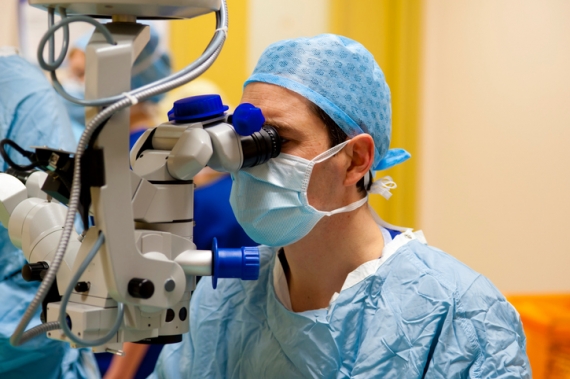Cataract Surgery Doctor
What should a patient look for in a cataract surgery doctor? One thing you definitely want to look for is the type of training the cataract surgeon has. Our highly qualified specialists at Elmquist Eye Group are exactly what you are looking for.
Our Cataract Team
 At Elmquist Eye Group, our experience team of ophthalmologists, ophthalmic surgeons and eye care professionals has been trained at the most respected medical facilities in the world. As a result, we have tremendous clinical knowledge and experience in a wide variety of eye diseases and surgical services.
At Elmquist Eye Group, our experience team of ophthalmologists, ophthalmic surgeons and eye care professionals has been trained at the most respected medical facilities in the world. As a result, we have tremendous clinical knowledge and experience in a wide variety of eye diseases and surgical services.
Our cataract specialists are board-certified by the American Board of Ophthalmology, an independent, nonprofit organization responsible for certifying U.S. eye physicians and surgeons. Our cataract surgery doctors continually work to update their skills to offer patients the latest advancements in eye care.
Are Cataracts Affecting You?
More than 25 million Americans currently have cataracts, and in the next decade, that number will rise as the aging population continues to grow. Cataracts are a normal part of aging. Natural proteins in the eye begin to clump together, making the normally transparent lens appear cloudy. These are age-related cataracts and they can range from mild to severe, creating difficulty for patients to see clearly.
Age is not the only cause of cataracts. These other factors also play a role:
- Genetics – Inherited genes may make you more prone to developing cataracts.
- Diabetes – Having diabetes puts you at higher risk for developing cataracts. When people have diabetes, cataracts often occur at a younger age and typically progress faster.
- Hypertension – Like diabetes, high blood pressure may lead to cataract formation earlier in life.
- Environment – Unprotected long-term exposure to various types of radiation may cause cataracts to form. These types of radiation exposure include: X-rays, infrared radiation used in welding and other trades, the sun’s ultraviolet radiation and microwave radiation
- Eye injury – Weeks months or even years after an initial eye injury, cataracts can form, even when the injury seems minor.
- Medications – Certain steroid medications and statins used to reduce cholesterol contribute to the development of cataracts.
Cataract Symptoms
If you have trouble reading, seeing in the distance, or difficulty with night vision, you may have a cataract. Other signs include:
- Cloudy, blurred or dim vision
- More difficulty seeing at night or in low light
- Sensitivity to light
- Halos and glare from lights
- Colors look faded or yellowed
- Needing brighter light for reading and other activities
- Frequent eyeglass prescription changes
- Double vision in one eye
What Is the Treatment for Cataracts?
Cataracts cannot be eliminated by using eye drops or taking medications. Many patients find that new prescription eyeglasses can help the increasingly blurry vision, but the only permanent fix is cataract surgery. The natural lens must be removed surgically and replaced with a new artificial lens.
Just because you have a cataract does not necessarily mean that it should be removed. However, when your blurred vision begins interfering with normal daily activities like reading or driving, you should have the surgery so you can have the most active and productive life possible.
If you know or suspect you have cataracts, and you are looking for a cataract surgery doctor, look no further than the expert cataract surgical team at Elmquist Eye Group. Give us a call and schedule an appointment to come in to get more information about cataract treatment.
